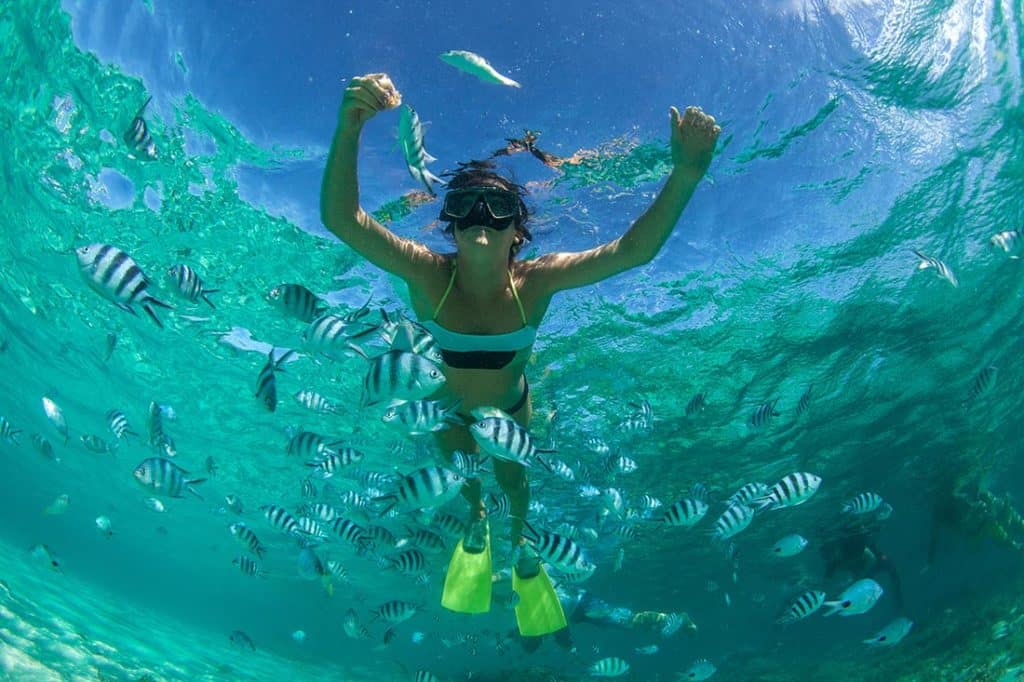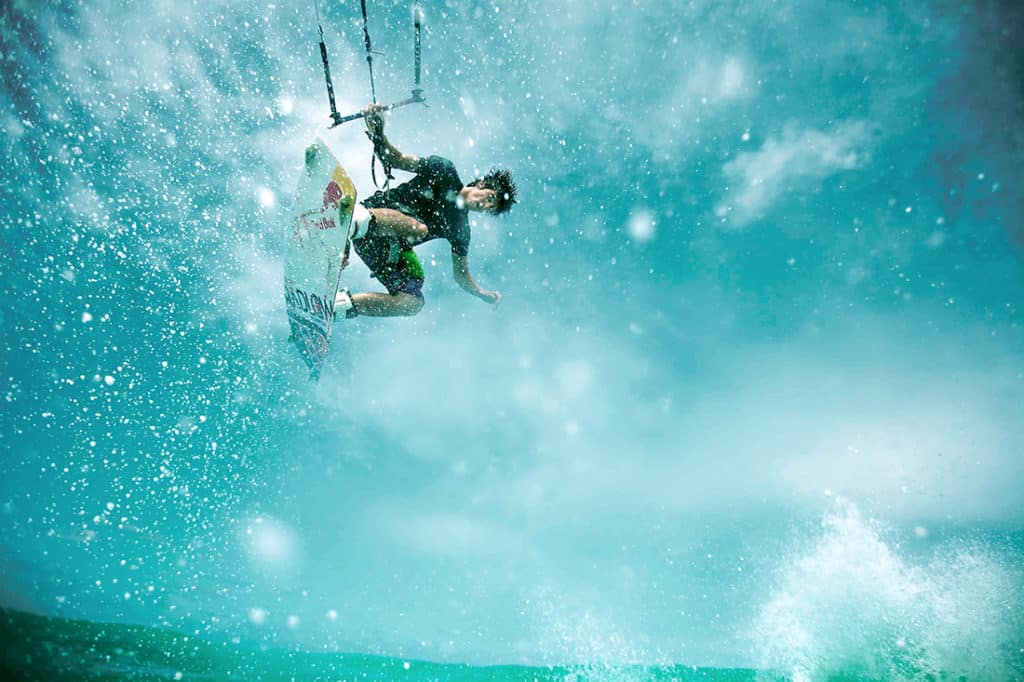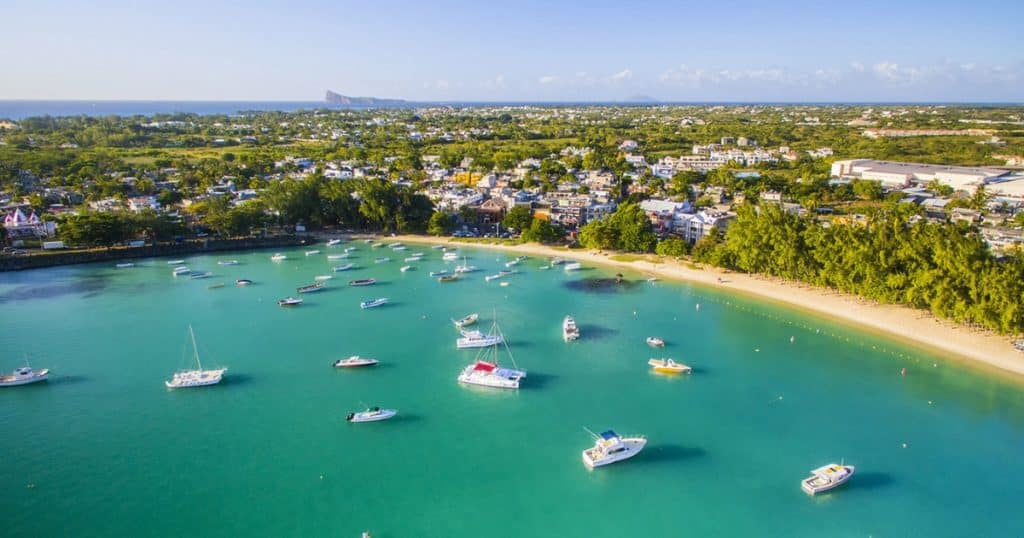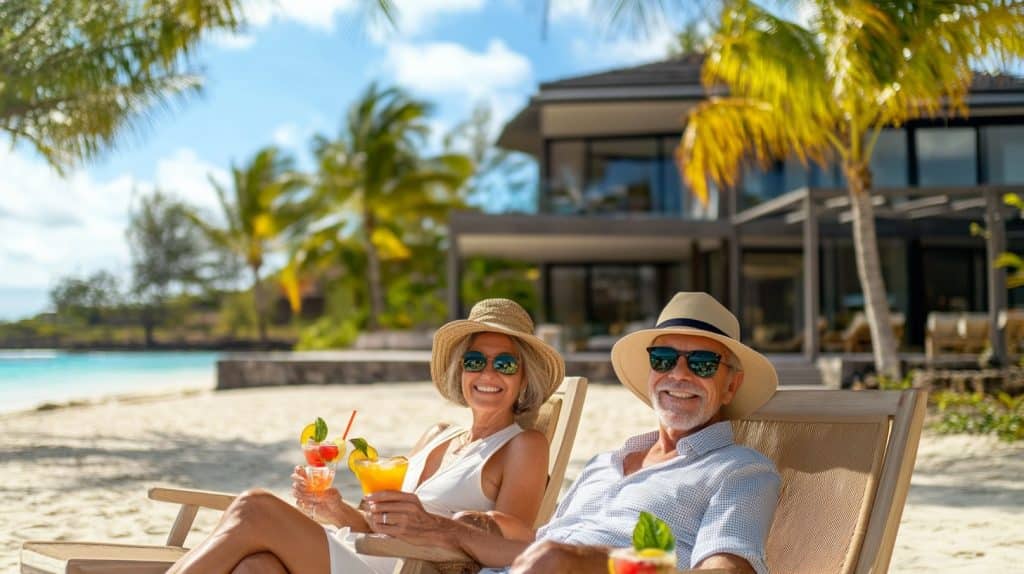If moving is one of the top three most stressful life events, is a move to Mauritius any easier? We talk to South African expats who have made their homes on this tropical island.
Moving to any new country can have its challenges, but some dream of a change in lifestyle and immersing themselves in the laidback, friendly island style that is Mauritius. Part of the argument to convince yourself (and your family) to make the change is the beautiful country, the best food, wonderful people, and perfect weather. The natural landscape is marked by mountains that dominate the Black River horizon in the west, odd-shaped dormant volcanoes, sugar cane fields, tea plantations, and small crop growers. And then there’s the azure Indian Ocean, white sandy beaches and peaceful lagoons in the North that present a constantly changing spectrum of shades of blue.
Relaxed outdoor lifestyle

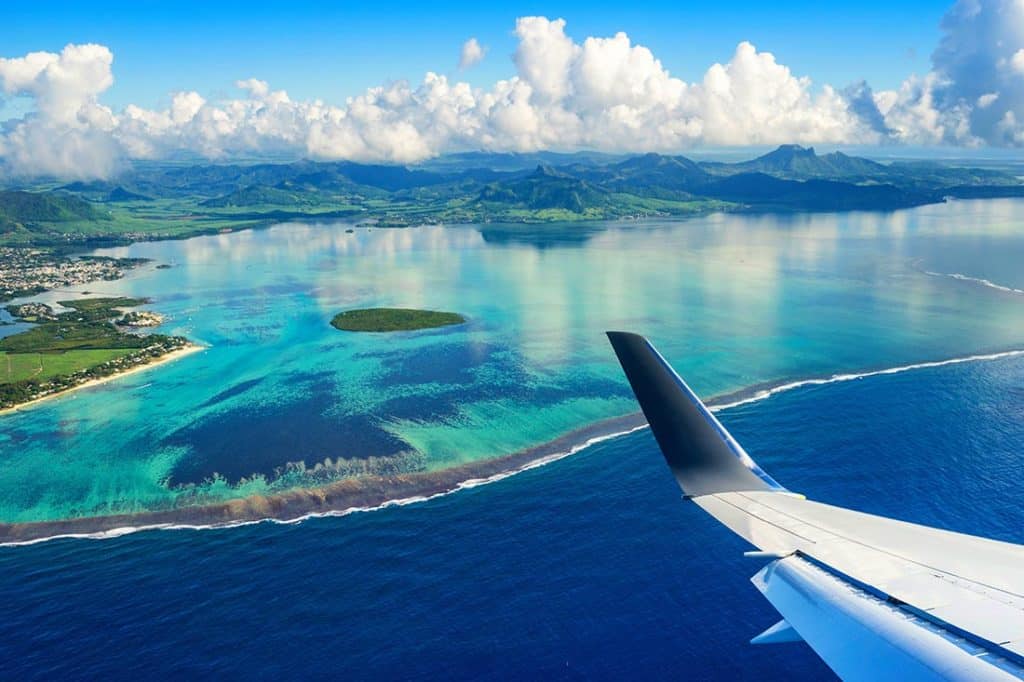
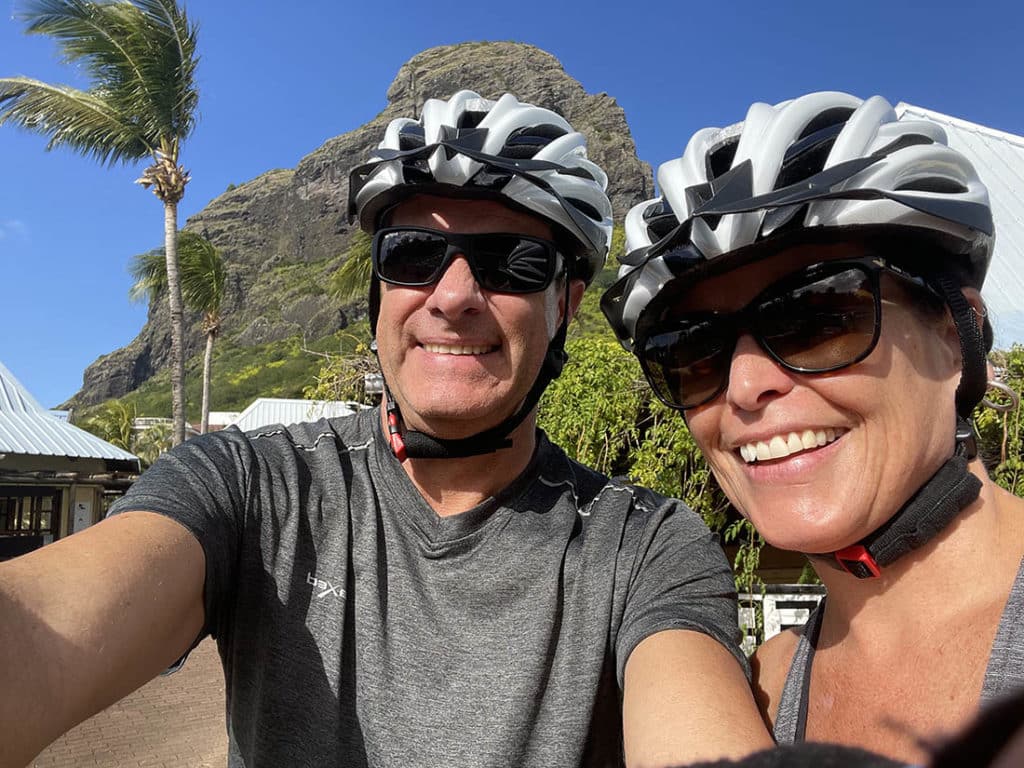
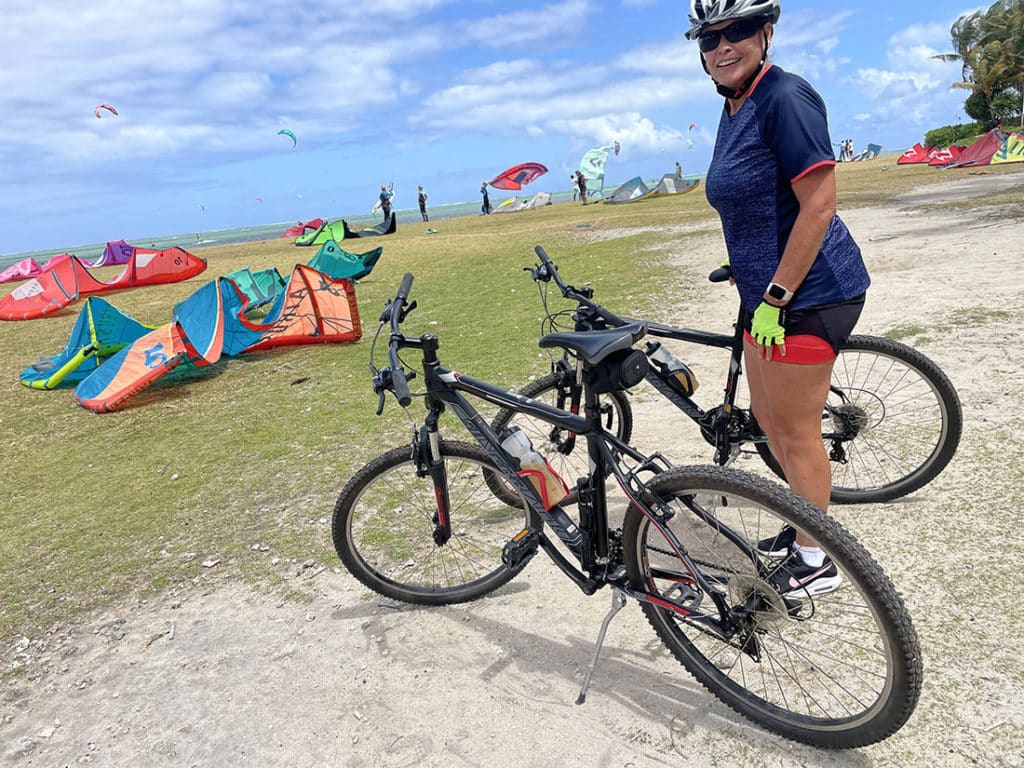
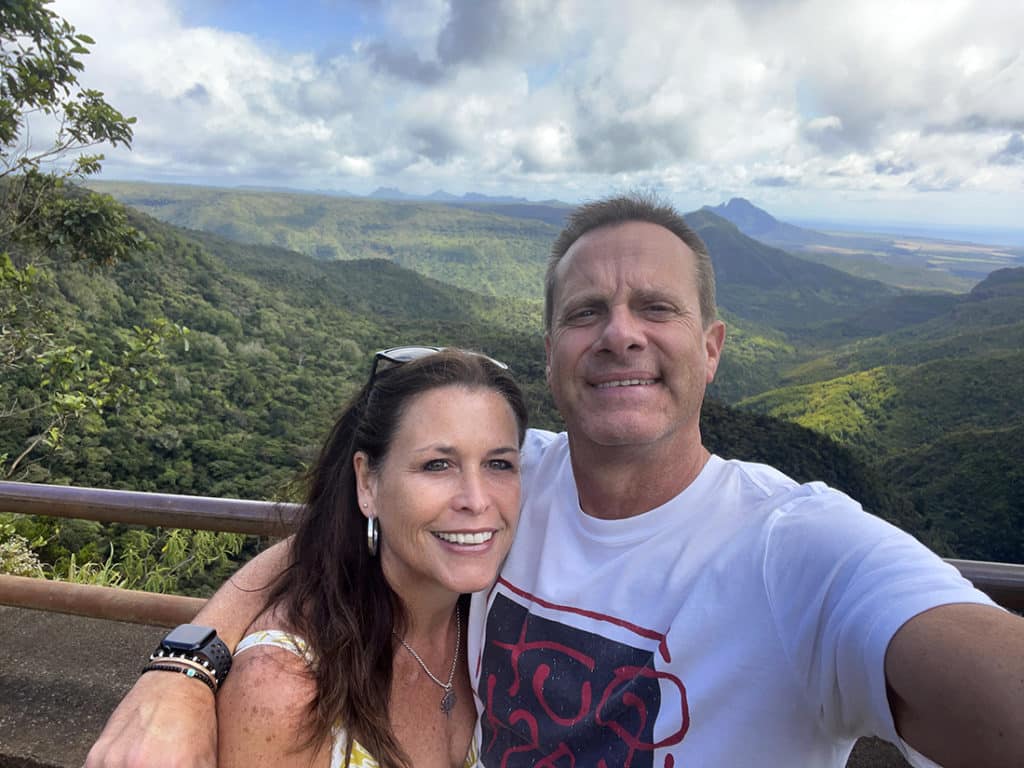
Lifestyle motivated Natasha Lauderdale, Foreign Sales & Projects Consultant for Pam Golding Properties (Mauritius), to move to the west coast. “Coming from KwaZulu-Natal and living at the foot of La Tourelle Mountain (which I have also climbed), it’s like being back home but on a smaller scale. We love the lifestyle in the west. If we’re not running before work in the morning, we’re climbing a mountain, kayaking, or cycling to Le Morne,” she says. “That’s the vibe that South African clients relate to. Many families prefer the west for raising children and school availability. It’s a more suburban atmosphere, but some prefer the vibey pace of the north.”
Sales Manager Jonathan Davies, working with Natasha out of the Tamarin Bay office, says he has visited Mauritius regularly over the past 20 years and found it the ideal place to enjoy with his family. “The island had me hooked a long time ago. While resort visits are always exceptional, living and working in Mauritius are completely different but equally enjoyable for different reasons. If the beach isn’t your thing, there are plenty of other things to do. We enjoy mountain biking or eating out at an authentic Mauritian restaurant, kayaking, or snorkelling. If that’s not enough, there are plenty of other things to keep yourself occupied, like outdoor walks or simply a chilled day at home next to the pool with a Phoenix beer,” he says.
Enviable safety

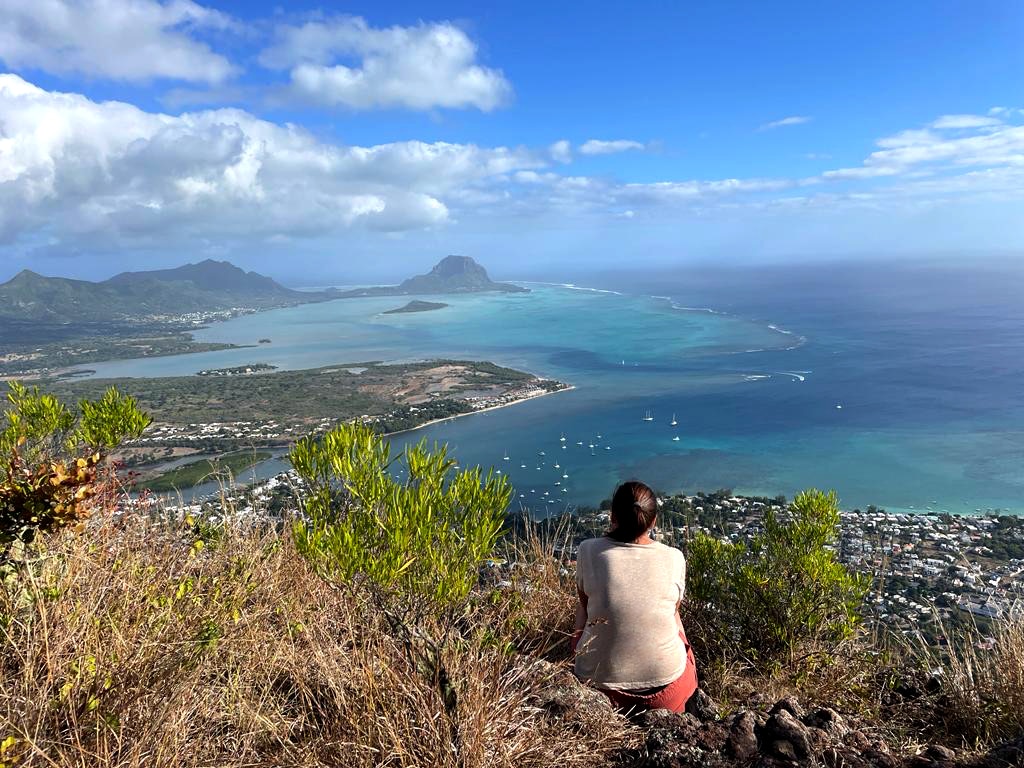
The island is a short flight from South Africa, which makes it very convenient in terms of distance. “The Johannesburg rat race I endured for 40 years has been replaced by a calmer existence where people do things differently and in a more relaxed manner. Yes, there are still the pressures of work and clients however it’s all worth it at the end of the week when one can walk safely down a litter-free road to the beach and just unwind. The safety here is also something to envy. It took a while to realise I didn’t have to look over my shoulder anymore. Road rage became a thing of the past, and the mutual respect drivers show for each other is quite refreshing. All in all, it’s been a great move.”
Newcomer Peet Strauss, Development Sales Manager at Heritage Villas Valriche, says, “It’s not too difficult if one considers moving countries is not easy.” He, like many expats who want to move with their dogs, is frustrated by red tape. Delays in getting rabies clearance are real, so it’s a good idea to become familiar with the regulations long before you move to keep separation time to a minimum. The good news is that Mauritian quarantine rules changed recently, and dogs now only have a five-day quarantine once they arrive on the island.
Street dogs in some areas are a challenge for animal lovers. It’s a question of being aware of their situation and territory, and getting used to their habits. It’s important to know that not all of them are strays. Local organisations such as The Mauritius Society for the Prevention of Cruelty to Animals (MSPCA) and PAWS (Protection of Animals Welfare Society) are trying to educate communities about animal welfare and sterilisation. They are succeeding to some degree, but it’s a journey.
Mecca for kiteboarding
Meanwhile, security also tops Peet’s list of what he loves most about Mauritius. He lives and works at Villas Valriche, an exclusive low-density housing estate in a nature reserve that offers beautiful hiking and cycling options. Wind and water conditions around the Bel Ombre estate make it a Mecca for kiteboarding and other water sports. The estate incorporates two five-star hotels, 12 restaurants, and two fantastic golf courses, while the reserve offers beautiful hikes and cycling.
“Once you know the little towns, you find more and more little spots, including restaurants, beaches, and local vendors. It’s all part of discovering the island lifestyle. Alcohol is expensive, but there is good beer, and the local rum industry is well-developed,” he says.
For Jonathan, the move was almost pain-free, though the paperwork was a little laborious. “Perhaps the worst for me was the acclimatisation. Coming from the dry Johannesburg air to a hot humid environment in April tested my limits for sweat and a high aircon bill, but I have grown used to it and sometimes find myself turning down the aircon or driving with my windows down,” he says. “The best part of the move was perhaps meeting the local people of Mauritius and discovering their helpfulness and hospitality. When our rental car broke down, we had help from about four passers-by who all seemed to enjoy the challenge of getting two South Africans back on the road. A challenging part of the move was understanding the Mauritian way – nothing happens very quickly, and everyone seems to take their time, especially from a work perspective.”
The real estate sector in Mauritius is well-regulated and has the significant advantage of not being exposed to currency fluctuations once you have purchased property. Selling takes place in a hard currency such as dollars or euros. The permanent residence permit is, of course, a big attraction and, at US$ 375,000, is still accessible to South Africans.
If you found this article interesting, stay tuned for part 2 when we share more of the agents’ tips about what to do and where to go in Mauritius for the best street food, restaurants, beaches, sundowners, and the like.

Born in Mauritius, I have a Bachelor of Arts in Mass Communication. I have nearly 12 years’ experience in marketing, public relations and communications. Passionate about meeting people, creativity and business growth, I am results-oriented. My goal is to guide communication to touch the hearts and minds of customers. My motto is: “Treat others as I would like to be treated.”

